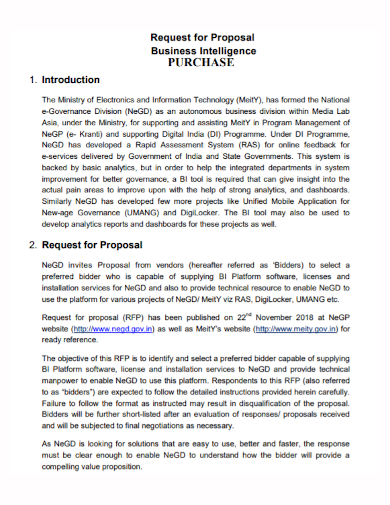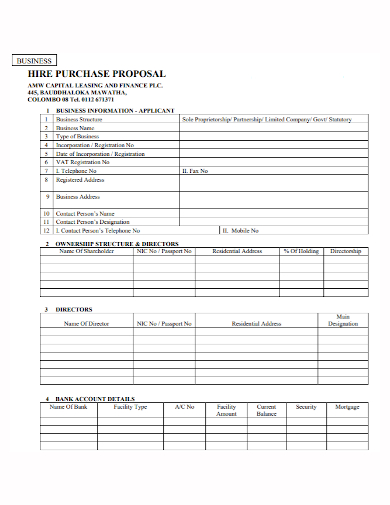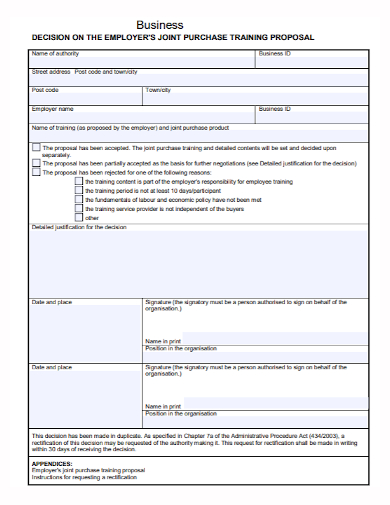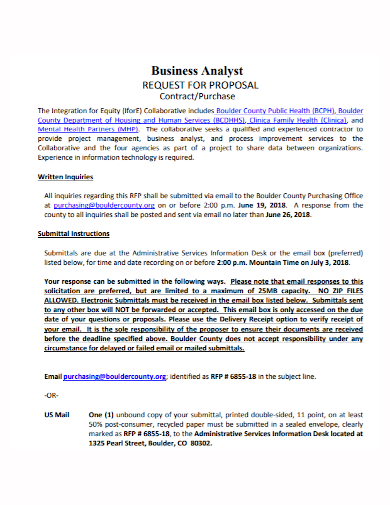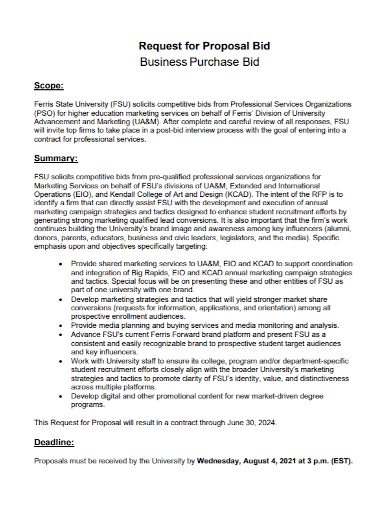After you’ve looked at a number of businesses for sale and decided on the one you want, you’ll receive a proposal to acquire one. You might be a little worried about making the offer, and the seller might be a little nervous about revealing important business information to you. From the seller’s perspective, placing the firm for sale and accepting offers is a major, sometimes emotional decision, and the seller may have just as many, if not more, concerns about the transaction than you have. Being an entrepreneur does not always imply starting a company from the ground up. You can sometimes purchase a business and own it quickly and easily. You’ll be well on your way to becoming an entrepreneur if you have the necessary funds and a compelling proposal to buy a business.
A business purchase proposal starts with a document called a “parameters sheet,” which is an offer letter that details essential terms of the deal, such as how much you’re willing to pay for the company and its assets, and how the company’s debt and liabilities will be settled. Current employment status, as well as any immediate plans for job terminations and severance payments, should be discussed on the terms sheet. The terms sheet is not a legal contract, but rather a proposition for the seller to consider.
6+ Business Purchase Proposal Samples
1. Business Purchase Proposal Template
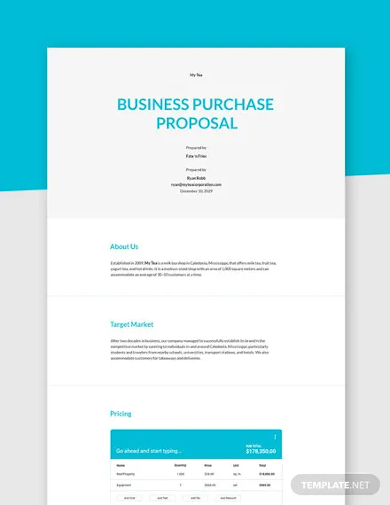
2. Business Intelligence Purchase Proposal
3. Business Hire Purchase Proposal
4. Business Purchase Training Proposal
5. Business Contract Purchase Proposal
6. Community Business Purchase Proposal
7. Business Purchase Bid Proposal
Practices for Buyers
Buyers are rarely required to demonstrate to the seller that they are the best possible buyer for the business. However, business owners want assurance that the company they built and worked so hard to establish will continue to operate after the sale. The price offered is usually the most important component in choosing who buys the firm. When making an offer to buy a firm, however, there are several best practices to follow.
Buyers should follow the following guidelines:
– Approaching the merchant in the proper manner.
– Conducting research before making an offer.
– Forming your offer properly.
– Confirm due diligence before finalizing the transaction.
Approaching the Seller
No two corporate transactions are identical, and anyone involved in the acquisition or merger of a company may notice that contacts between buyers and sellers are crucial to closing the sale. Having someone you know introduce you to the business owner, who also knows the business owner, can assist get the transaction started on the right foot.
Business networking boosts the seller’s confidence and can even assist the deal move along more quickly. Plus, if a company isn’t posted for sale at the time you’re looking at it, continue with caution to see whether the owner is willing to sell if you make a reasonable offer.
Preparing the Offer to Buy the Business
When you’re getting ready to make an offer on a business, knowing what metrics the existing owner uses can be helpful. For example, knowing what the seller considers when determining the value of the business before entering into talks can be beneficial.
To figure out what the seller appreciates, inquire about the performance metrics the owner uses to judge how healthy and developing the business is. If the seller keeps track of recurring monthly revenue and how it ties to the customer base, you’ll be able to figure out what the owner values about the company.
FAQs
Do you have to involve an accountant or an attorney?
Yes. Examine all of the data with your accountant and lawyer. Based on your analysis, write a company purchase proposal. In the first paragraph of your letter, state the most important point: the purchase price.
What other things do you have to describe when writing a proposal letter about the purchase?
As you write the letter, make a detailed description of everything you’re buying, including the company itself, any contracts, client lists, equipment, furniture, licenses, and other assets. Then decide how the company’s liabilities, such as outstanding debt, will be handled. Finish by addressing any difficulties with the company’s employees, such as promises to keep particular employees or providing severance money to those who are laid off. Include any specific arrangements you’re working out with the owner, such as keeping him on as a consultant or forcing him to sign a non-compete agreement as a condition of the sale.
If you want to see more samples and formats, check out some business purchase proposal samples and templates provided in the article for your reference.
Related Posts
FREE 18+ Real Estate Proposal Templates
FREE 17+ Sample Price Proposal
FREE 13+ Real Estate Investment Proposal Samples
FREE 12+ Capital Investment Proposal Samples
FREE 11+ Photography Proposal Templates
FREE 10+ Business Letter Of Intent Samples
FREE 9+ Sample Product Proposal Letter
FREE 9+ Property Investment Proposal Samples
FREE 7+ Letter Of Intent to Purchase Business
FREE 16+ Sample IT Proposal
FREE 13+ Sample Bid Proposal
FREE 12+ Purchase Quotations
FREE 10+ Medical Business Proposal Samples
FREE 10+ Letters of Intent to Purchase Property
FREE 9+ Letter of Intent to Purchase Land Samples

